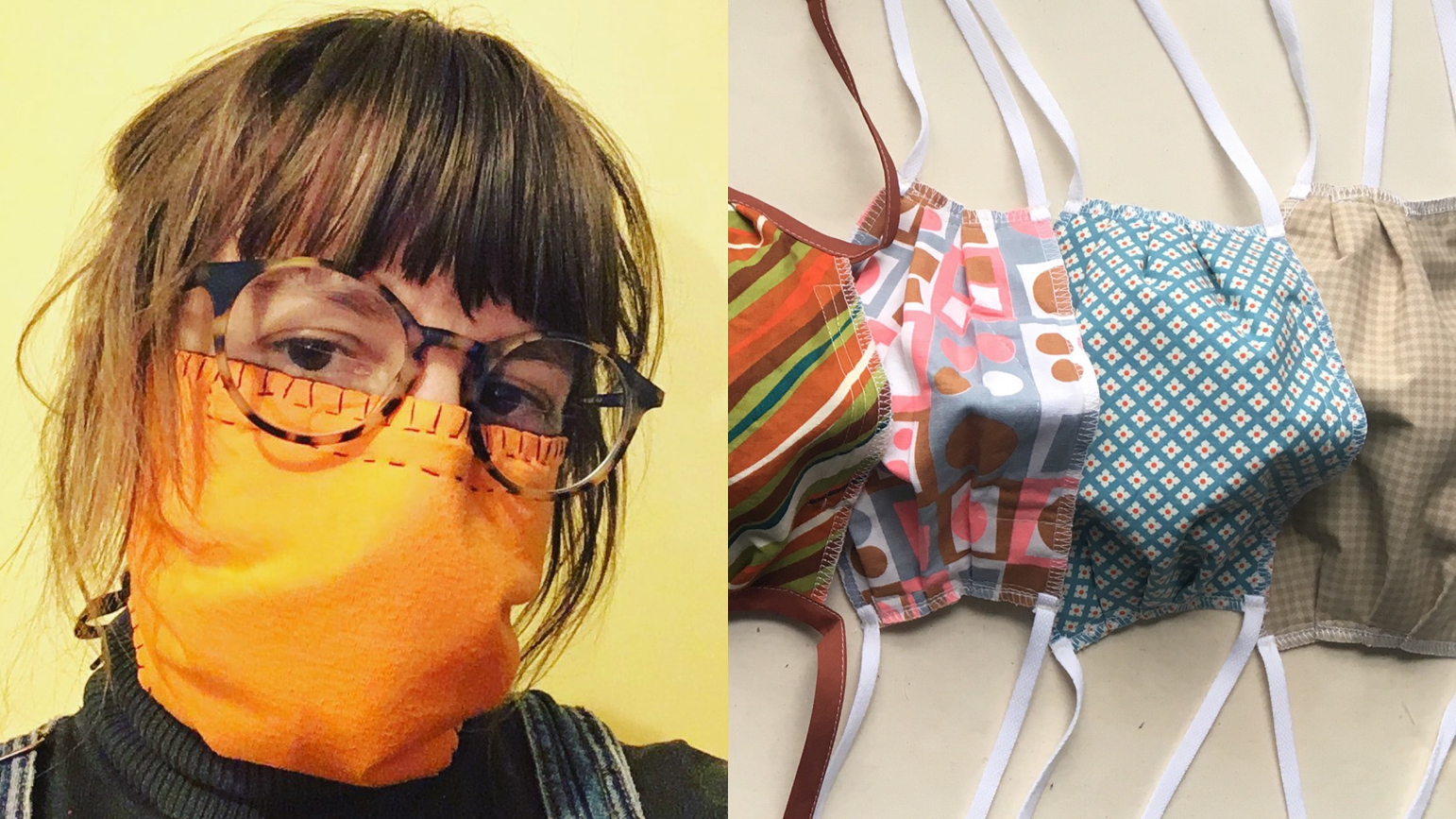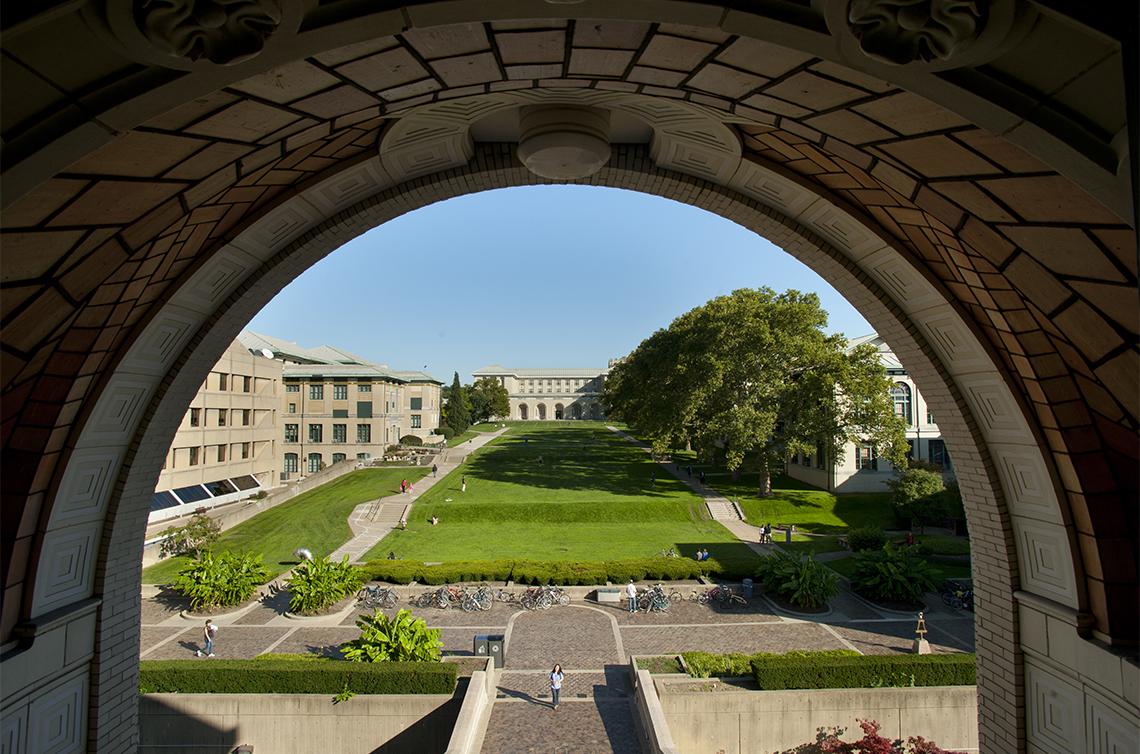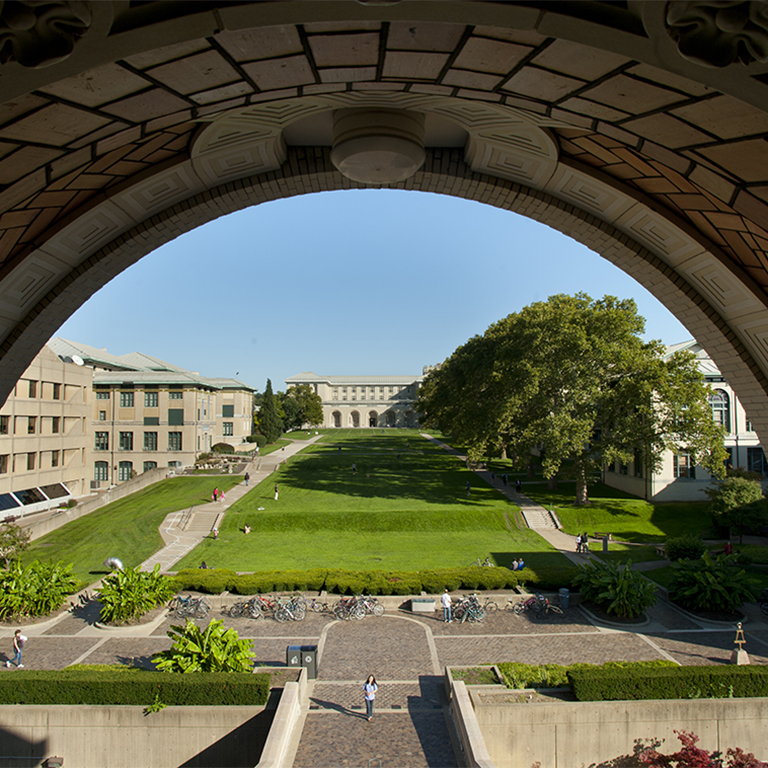
A week and a half ago, School of Art alumna Jenn Gooch (MFA ’09) began seeing reports about shortages of face masks and decided she’d sew a few to help out some neighbors in need. From those first few masks, Gooch formed Operation Face Mask Pittsburgh, a well-organized team of volunteers who cut, sew, and deliver masks, as well as provide education on proper mask wear and care, to many of Pittsburgh’s in-need but overlooked populations.
“I made a couple of tutorials on how to make masks about a week and a half ago,” said Gooch, “and that exploded into me both making masks, as well as doing the material research to create masks that were washable and reusable.” She also figured out how to source necessary materials.
The result of her organizing, Operation Face Mask Pittsburgh, is now run by a board of seven volunteers who coordinate mask fabrication, material donations, requests, and deliveries, along with other logistics. In addition, around 50 other volunteers are hard at work making masks and driving them to those in need, although Gooch says the number of volunteers grows by the day.
Like Gooch, the majority of group’s volunteers are professional tailors who are currently unemployed members of IATSE 489, Pittsburgh’s union of production technicians for filmmaking. “If you’d given me five months to come up with this group, I couldn’t have done any better,” said Gooch.
As Operation Face Mask Pittsburgh has worked on getting volunteers up and running, Gooch said they’ve been able to make around 50 masks a day, but she expects that capacity to grow rapidly. The group has only mobilized volunteer sewers starting this week, and they just received many needed materials on Tuesday.
Gooch said it’s important to Operation Face Mask Pittsburgh to provide masks for the area’s overlooked populations, such as grocery store workers, delivery drivers, and other essential workers. Most of their requests, she said, are coming from individuals. The group has also worked with a doctor in Allegheny County Jail to provide masks for inmates.
All materials, as well as funds for covering material and other costs, are donated. Gooch said the group is especially in need of unused cotton cloth, monetary donations, and volunteers to sew. To donate or to volunteer, visit operationfacemask.com.
The website also contains a video tutorial on how to make your own mask, as well as detailed instructions on how to properly wear and wash your mask. “A really high priority for us is that people are educated for proper usage,” said Gooch. One reason widespread mask use has not been promoted, she said, was because people often improperly wear or care for their masks.
Operation Face Mask Pittsburgh’s masks are made from cotton, wire nose pieces, ties, and non-woven polypropylene inserts, which is a similar material to what is used in medical-grade masks to filter microscopic particles.
Gooch said this project has led her to reflect on her time at CMU, and in particular how the School of Art’s integration of contextual practice into its curriculum shaped much of her work. CMU’s School of Art was one of the first programs to integrate contextual practice, a field of art making that directly engages with public life.
One of her better-known projects as a graduate student was “One Cold Hand,” a community project for collecting lost gloves. A four-month endeavor, the project involved 17 volunteers and collection boxes throughout the city. It was covered by national and international publications including The New York Times, NPR, and the BBC.
“There were several projects I did [at CMU] that have definitely informed my ability to pull a project like this off,” she said. Her education gave her the skills so that when “a project like this explodes all of a sudden, I have the ability to know what my needs are and know when to ask for help.”




